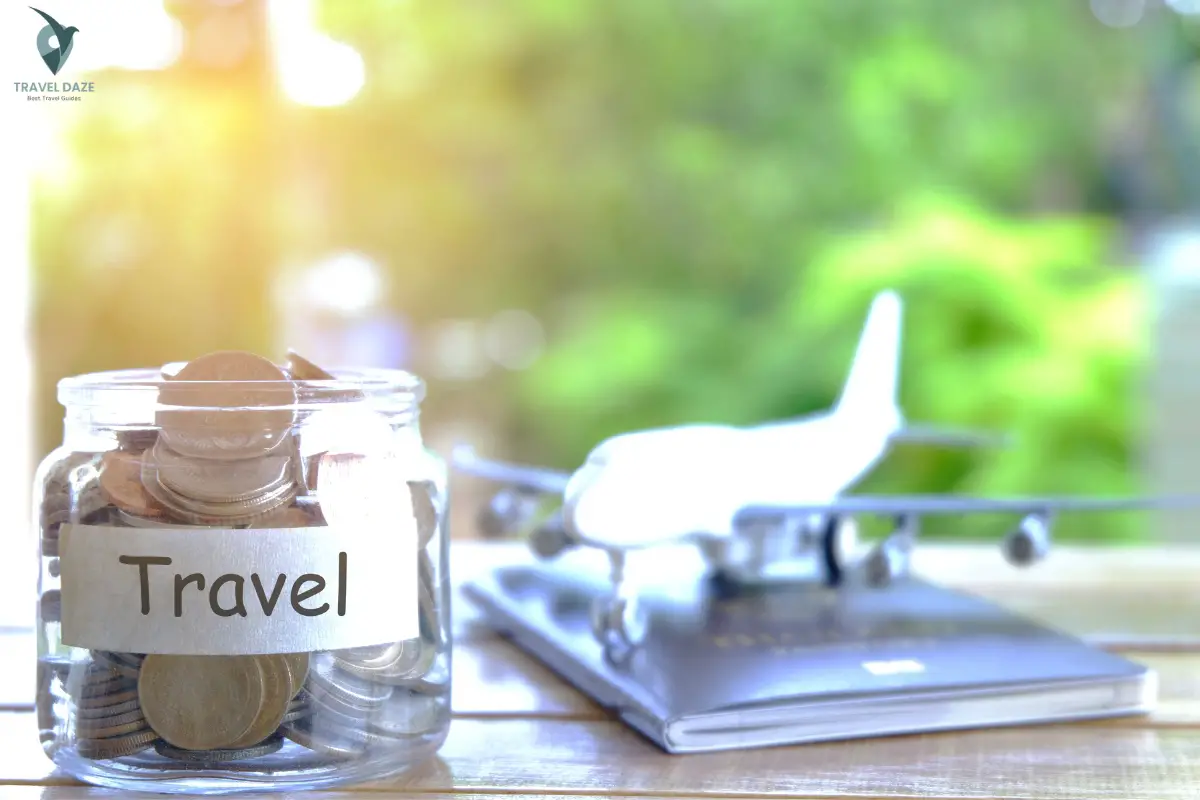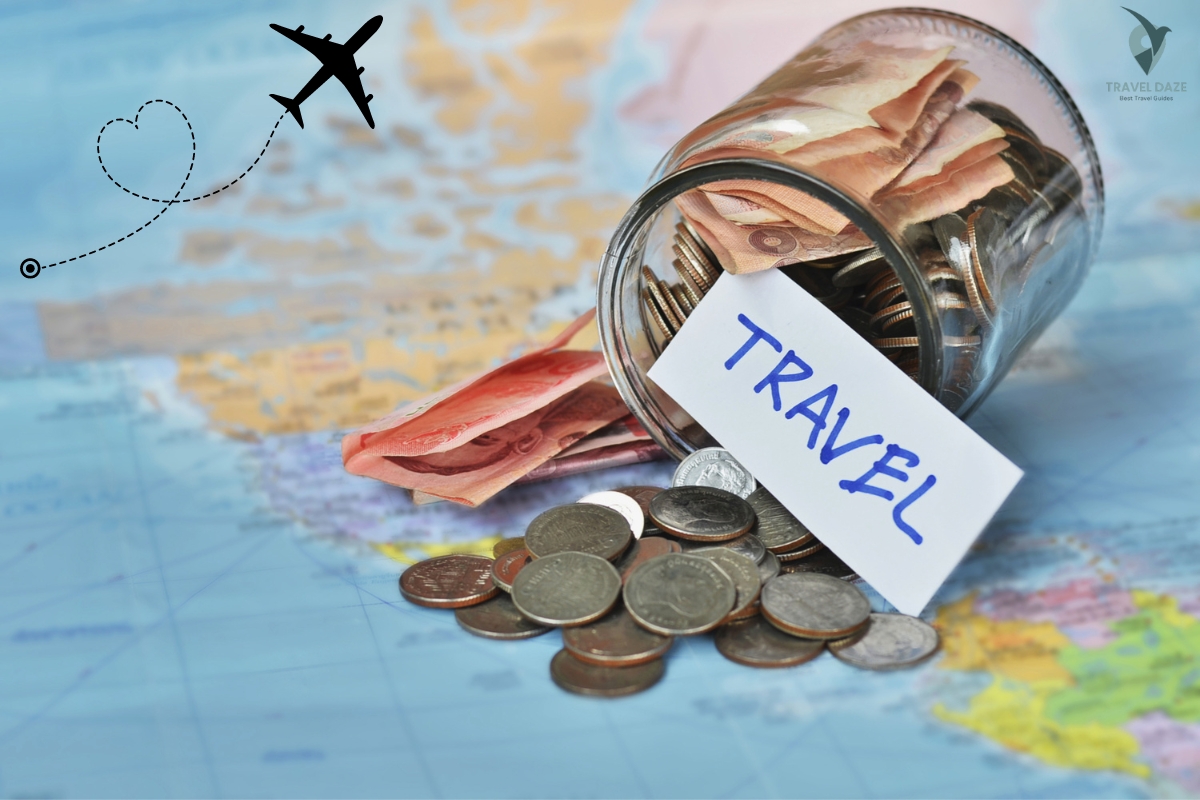After a few months of traveling, my bank account started to look like a ghost town: empty, lonely, and desolate. I knew something had to give. Traveling should broaden your horizons, not empty your bank account. And now I’m here, having learned how to save money without giving up the full, enriching experience that traveling the world gives.
Table of Contents
ToggleMy mantra became “save money while enjoying every moment,” and I can tell you that it’s possible.
Let’s look at a treasure trove of travel tips I’ve picked up over the years that will save you money. Picture this: you could walk through busy markets, eat delicious local food, and still have enough money for three random adventures.
Not just getting by; being smart about money while soaking up new cultures is what it’s all about. I’ll tell you all the juicy money-saving tips that have kept my travels alive and my memories rich, from getting great deals on lodging to becoming best friends with public transportation.
Important Things You Need to Know
1. Before a trip, I always make it a priority to make a daily budget so I can keep track of how much I spend. I avoid making hasty purchases and can make better choices about where to spend my money when I know exactly how much I can afford to spend each day.
2. From my own experience, I know that picking the right places to stay is important for saving money while traveling. Not only does staying in hostels, guesthouses, or through sites like Airbnb save me money, but it also gives me unique chances to learn about the culture of the place I’m visiting.
3. I consistently eat like a local, which not only saves me money but also improves my trip. Street food and local markets often have tasty, authentic food that is much cheaper than restaurants that cater to tourists.
4. Taking public transportation instead of taxis or rental cars has cut my travel costs by a lot. I like taking buses, trains, and subways because they are cheap ways to see new places and give me a better sense of how people live in the places I visit.
5. Finally, I’ve learned that being flexible with travel dates and times can save me a lot of money on hotels and flights. When I fly during the week or during off-peak seasons, I can usually find cheaper plane tickets and fewer people, so I can enjoy my trips without breaking the bank.
How to Choose Cheap Accommodation
When I plan my trips, I always make sure to include finding cheap places to stay. Most of the time, I choose hostels or services like Airbnb because they offer great deals and unique experiences in the area. Trading a hotel room for a shared hostel room often reduces my accommodation costs by half or more.
If you want to stay for a long time, I suggest negotiating rates with hosts. Many are willing to offer discounts for longer stays. Make sure to read reviews about how clean and safe the place is to make sure I have a good stay and don’t lose my wallet.
Smart Choices for Transportation
A big part of my travel plan is finding cheap ways to get around. By taking buses or trains instead of driving myself, I can save a lot of money on transportation costs. I also like to walk or rent a bike when I can.
It’s cheap and lets me find hidden gems that I wouldn’t see if I took a taxi or car. I also like to use apps like Uber and Lyft because they often offer discounts for first-time users or during off-peak hours.
Making your own meals
Eating out can quickly use up all of my travel money. Instead, I often buy things at local markets, and I sometimes cook my own meals. I save money and enjoy local food in its purest form when I buy a simple breakfast or picnic lunch from a nearby grocery store.
Also, cooking with friends or meeting new people in a hostel kitchen can be a fun way to get to know each other.
Make use of free attractions
You don’t have to spend a lot of money to see the sights. I’m always looking for free things to do and see in the place I’m visiting, such as a walk in a beautiful park, free admission to public museums, or historical sites that you can see from the outside.
A lot of cities offer free walking tours, which are a great way for me to learn about the culture and history of the area without spending any money.

Travel During Off-Season Times
Timing is very important for cheap trips. When I plan my trips, I do so during the shoulder seasons, when prices for flights and hotels drop a lot. I not only save money, but I also get to see my destination more authentically and with fewer people.
I’ve learned to be flexible with my travel dates and often use tools that compare fares to find the cheapest times to go.
Understanding local currencies and exchange rates
It’s important for me to be smart with my money while I’m abroad. After checking the current exchange rate, I usually pay for things with local currency instead of my credit card, which charges fees when used outside of the country.
I also avoid airport currency exchanges because they usually have bad rates and extra fees. Instead, I use the area’s ATMs or banks.
Cut Unnecessary Expenses
Little things can add up. To avoid buying drinks on the go, I always bring a refillable water bottle with me. I also bring snacks to keep myself from buying things I don’t need. I buy any necessary items before my trip because I know that prices tend to go up in tourist areas. I’m not afraid to ask for student, senior, or military discounts when they are available to save even more money.
Earning Rewards and Travel Points
Being smart about how I use a credit card with travel rewards has changed everything for me. When I buy something, I get points that I can exchange for flights or hotel stays.
Of course, I pay off the whole balance every month to avoid interest. The goal is to save money, not get into more debt.
Making the Most of Group Discounts
Going on a trip with friends? I take advantage of group discounts for places to stay, rides, and attractions. Sharing costs with other travelers can not only save you money, but it can also make the experience better by letting you share it with other people.
Staying Connected for Less
I must avoid having to pay ridiculously high roaming fees for my phone. I either buy a SIM card from a local store or use free Wi-Fi to use messaging apps like WhatsApp and Skype.
This lets me stay in touch without spending a lot of money.
What Are the Five Key Tips to Remember for Budget Travel?
1. Choose the transportation and lodging options that give you the most for your money.
2. Eat out less often by making meals at home with fresh local food.
3. Find free activities to do and ask locals for advice on inexpensive ways to have fun.
4. If you travel outside of peak times, you can save a lot of money on flights and hotels.
5. Watch your money by avoiding fees you don’t see and making good use of travel rewards.
Last words on cheap travel tips
I think everyone should be able to travel without having to spend a lot of money. Incorporating these low-cost travel tips has consistently let me visit new places without spending too much. By not thinking like a typical tourist, I’ve found amazing things to do that didn’t cost much or anything at all, met great people by taking the bus, and enjoyed the richness of local food without having to pay a lot for it.
Don’t forget that the experience, not the cost, is what travel is all about. You can travel the world and satisfy your wanderlust without putting your finances at risk if you take the right steps.
If you can save money while traveling, it’s not only good for your wallet, but it can also make your trip more authentic and memorable. When I skimped on accommodations and spent more on experiences, or when I picked a scenic train ride over a quick flight, I’ve had the best trips.
These tips should help you plan your trips and get to the amazing experiences that are waiting for the cheap traveler who wants to see the world one step at a time.
FAQ
How can I find affordable accommodations?
Finding cheap places to stay is a great way to save money on your trip. On sites like Airbnb, you can find unique places to stay that are often less expensive than hotels. You could also stay in a hostel, which is cheap and gives you the chance to meet new people, or you could even try couchsurfing. One more tip is to plan your trip for the off-season, when prices are usually lower and you can get better deals.
Are there tips for saving on food while traveling?
To save money on meals, store your food at nearby markets and cook it yourself whenever you can. Choose a place to stay that has a kitchen so you can make simple meals. Eating street food is another cheap and tasty way to eat like a local. Instead of going to tourist traps with high prices, don’t be afraid to eat at small, family-run restaurants.
What travel apps can help me manage my budget?
There are many apps that can help you manage your money while you’re traveling. You Need a Budget (YNAB) and Mint both let you keep a detailed budget. Check out Groupon or LivingSocial for deals on things to do and places to eat. Get alerts about cheap flights with Skyscanner or Hopper.
Is public transport a better option than renting a car?
Of course! Most of the time, taking public transportation is the cheapest way to get around a new city. If you compare subways, buses, and trains to renting a car, you can save a lot of money. You can also save money on gas and parking. A lot of places offer day or week passes that let you travel as much as you want, which can be a great deal.
How do I avoid costly tourist traps?
Research is your key to avoiding tourist traps. Join online forums, read travel blogs, and ask people who live there for insider tips. Most of the time, the best things in life don’t cost much or anything at all. Pay attention to natural sights, free museums, and public events that offer real experiences at low costs.
Can travel insurance save me money long-term?
Insurance for your trip can actually save you money, even though it doesn’t make sense. This safety net covers unexpected things that can cost a lot of money, like medical emergencies, trip cancellations, or lost luggage. It’s not much to pay for peace of mind and protection against unexpected expenses.
Why should I avoid currency exchange services at airports?
The exchange rates at airports are usually the worst, so it’s best to stay away from them. Instead, use a credit card that doesn’t charge foreign transaction fees or get cash from an ATM when you get to your destination. To avoid surprises, make sure you know how much your bank charges for international withdrawals.
What are the benefits of slow travel?
Adopting the idea of “slow travel” can help you save a lot of money. Staying in one place for a longer time can save you money on lodging for longer stays, lower your transportation costs, and give you more time to explore a place. This not only saves money but also often makes the trip more interesting. Additionally, slow travel allows you to immerse yourself more deeply in the local culture, creating meaningful connections and experiences that can make your trip truly unforgettable. By savoring each destination rather than rushing from place to place, you build richer memories, which can be helpful when coping with posttravel depression. Taking the time to engage with a destination on a deeper level often leaves a lasting impression, making the return home feel less abrupt and more fulfilling.
Can I get discounts if I book in advance?
Yes, for sure! Early booking often yields the best deals. If you book your flights, hotels, and even some activities ahead of time, you can save money and avoid price increases at the last minute. Keep an eye out for deals that let you book early, as these can save you a lot of money.
What is the importance of having a daily budget while traveling?
Making a daily budget is important for keeping track of your trip funds. It aids in prioritizing experiences, preventing unnecessary spending, and closely monitoring your finances. Sticking to a set budget helps you be more creative when looking for free or cheap things to do, and it also helps your travel money last longer.





